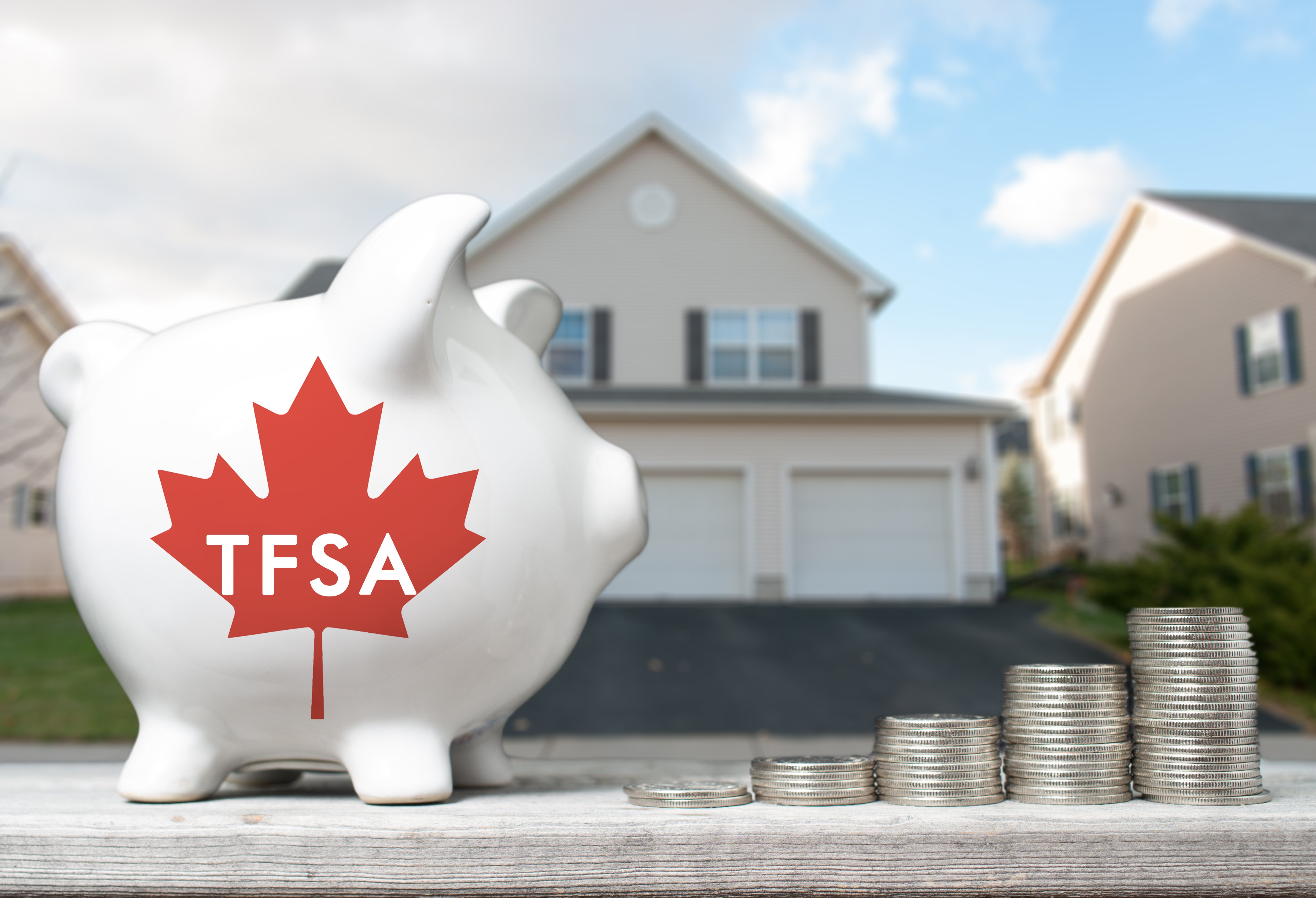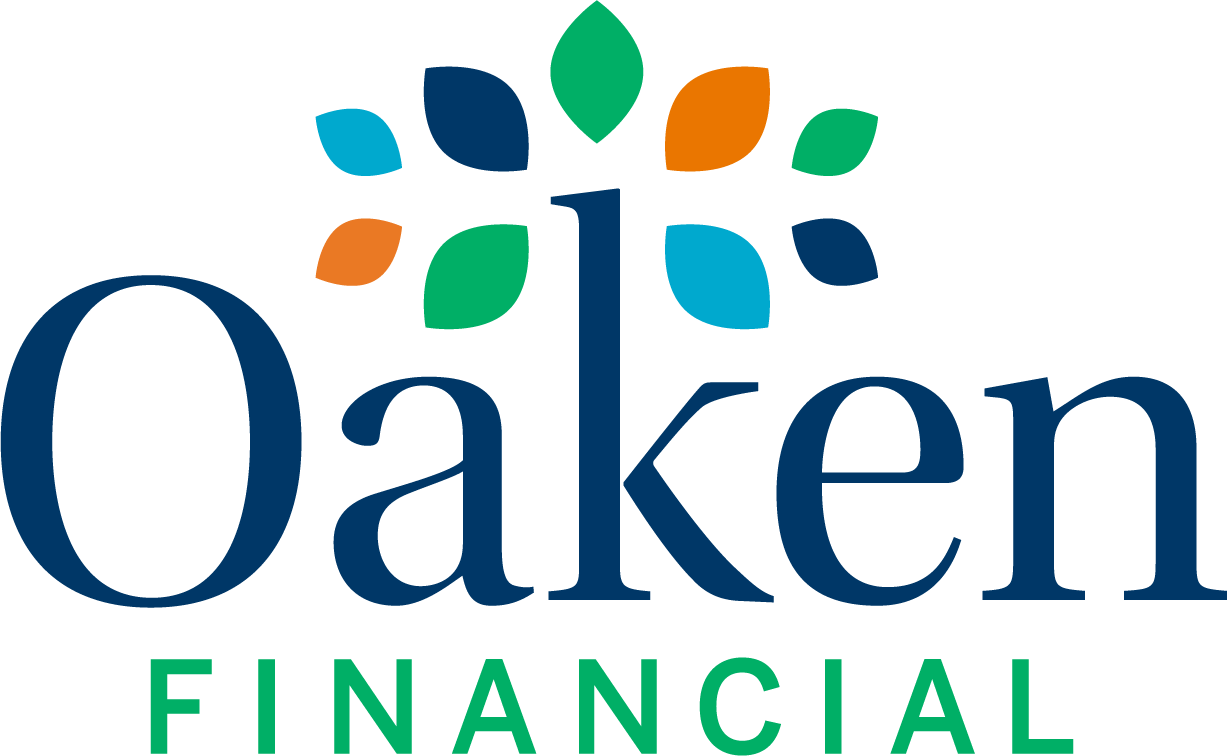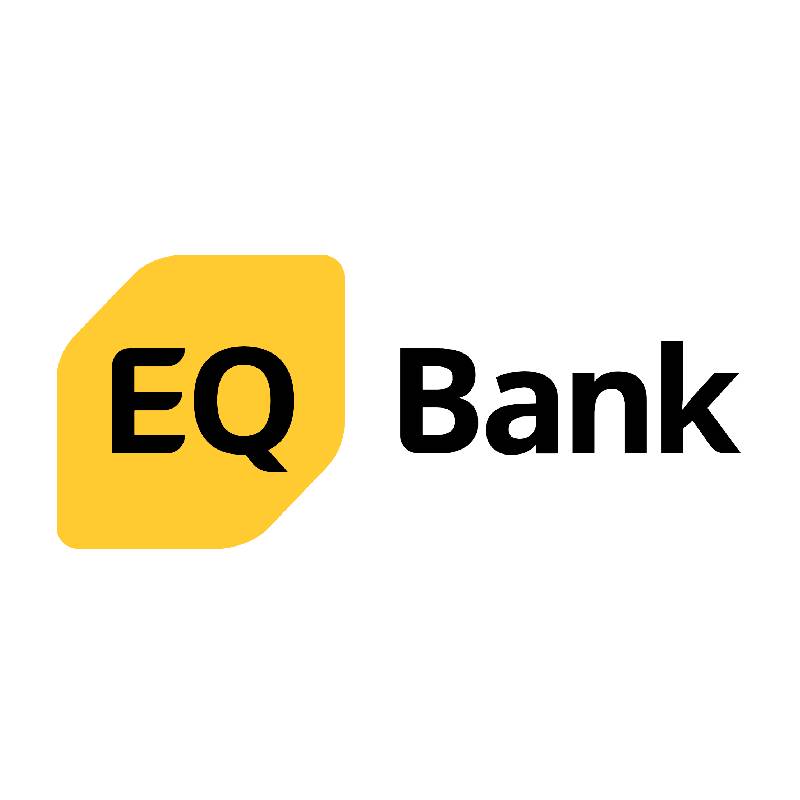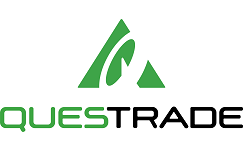
Best TFSAs in Canada
DD Images / Shutterstock
A Tax-Free Savings Account (TFSA) shelters savings interest and investment earnings from being taxed, which makes it a great place to park your cash, GICs, mutual funds, securities and more. The TFSA has been available in Canada since 2009, and each year the Canadian government sets a maximum annual contribution amount for every Canadian 18 years of age and older. The annual maximums add up throughout your adult life, and if you don’t meet the maximum contribution in a given year you can always catch up later on.
Sound appealing? We commend you for your decision to get in the game and open a TFSA this year. But there are a lot of options out there, so take a look at the different offers available rather than signing up for the TFSA offered by your usual banking partner.
Best tax-free savings accounts in Canada
| TFSA | Regular interest rates |
|---|---|
| Oaken Tax-Free Savings Account | 4.15% to 5.05% with registered GICs |
| EQ Bank Tax-Free Savings Account | 3.00%* |
| Tangerine TFSA | Varies |
| Motive TFSA | 1.25%–2.0% |
| BMO TFSA Accounts | 0.05% |
| Wealthsimple Tax-Free Savings Account | Varies |
| Questrade Tax-Free Savings Account | Varies |
Oaken Tax-free savings account
Launched by Home Trust in 2013, Oaken Financial offers TFSAs in the form of registered GICs. Interest rates range from 4.15% to 5.05%, depending on the term length selected, and require a $1K minimum deposit. In addition to no fees for GICs with Oaken, no fee is charged for transferring the TFSA to another institution.
A TFSA with Oaken is a great option for those who are risk averse, as it offers a guaranteed return at a rate around or above inflation, and accountholders won’t be penalized if another bank eventually offers a more attractive TFSA deal and it’s preferable to switch.
◦ Interest rates: 4.15%-5.05%
◦ Term lengths: 1 year-5 years
◦ Minimum deposit: $1,000
◦ Fees: No fees for GICs
◦ Eligible for CDIC insurance
◦ Open an account online or at branches in Toronto, Vancouver, Calgary and Halifax.
EQ Bank TFSA savings account
EQ Bank is an online bank launched by Equitable Bank in 2016, offering Canadians a no-frills online-only savings account and GIC experience. Recently, EQ Bank has expanded its offerings to include TFSA Savings Accounts to those with an existing EQ Bank Savings Plus Account. The interest rate on this account is 3.00%*, which is the regular interest rate, not a promotional rate.
In keeping with most other online banks, there are no branches for you to visit, and the process of opening and maintaining your account is done entirely online. Since EQ Bank has no physical branches, you’ll also pay no monthly fees on your account. You can open as many regular high-interest savings accounts as you like and a maximum of one TFSA Savings Account per person. To transfer funds to an EQ Bank TFSA Savings Account, you can link your regular chequing account, make one-time transfers or set up an automatic transfer. You can also use Interac e-Transfers® to fund your account.
A TFSA Savings Account with EQ Bank is an excellent option for those looking to earn the maximum possible tax-free interest but want their assets liquid enough to access at a moment’s notice.
◦ Interest rate: 3.00%*
◦ Minimum deposit: None
◦ Fees: None
◦ Eligible for CDIC Insurance
◦ Open an account online
◦ * Interest is calculated daily on the total closing balance and paid monthly. Rates are per annum and subject to change without notice.
Tangerine TFSA
Tangerine Bank's Tax-Free Savings Account (TFSA) in Canada is a popular choice for those looking to save money while benefiting from tax-free interest earnings. This account combines the features of Tangerine's personal account with the added advantage of being tax-free. One of the key attractions is that the interest earned in the TFSA and any withdrawals made from it are not subject to taxation, provided the account stays within the annual contribution limits. As of 2024, the annual TFSA contribution limit is $7,000.
Tangerine's TFSA offers significant flexibility, allowing customers to move their funds at any time without minimum balance requirements or lock-in periods. In line with Tangerine's policy of fairness, the TFSA comes with no service charges or fees for saving. Additionally, the bank provides tools for setting personal savings goals and an Automatic Savings Program (ASP) to help customers achieve their financial objectives more systematically.
The TFSA account at Tangerine is also known for its competitive interest rates. Initially, they offer an attractive 6% interest rate for the first five months, followed by a standard rate of 0.70% after the introductory period. This account requires no minimum balance and imposes no annual fees. Features like automatic contributions and goal tracking enhance the appeal of Tangerine's TFSA, making it a user-friendly option for both short-term and long-term savings
Motive TFSA
Motive Financial is an online-only bank, and its low operating costs allow it to pass on high interest rates to its customers. It’s particularly attractive for those who want the flexibility of holding cash in their TFSA, as its interest rate is among the highest in Canada for this account type, and there are no fees for making withdrawals.
Though Motive Financial is owned by Edmonton-based Canadian Western Bank, its accountholders cannot be serviced at Canadian Western Bank branches; all customer service is conducted via email or phone correspondence only.
◦ Interest rates: See Motive Financial
◦ Minimum deposit: None for a regular TFSA; $1000 for a GIC held in a TFSA
◦ Fees: $50 for closing a TFSA within one year of opening, or for transferring a TFSA to another bank at any time.
◦ Eligible for CDIC coverage
◦ Not available to Quebec residents
BMO TFSA Accounts
BMO’s TFSA interest rate is a comparatively low 0.05%, but those who are more comfortable working with a major bank might be willing to overlook that. BMO offers both TFSAs for basic cash deposits and for holding investments.
BMO does not charge for withdrawing from its TFSA, but it does charge a $50 fee for transferring the TFSA to another organization.
◦ Regular interest rate: 0.05%
◦ Minimum deposit: $50
◦ Fees: $50 for transferring to another institution
◦ Open an investment TFSA account online or at one of 900+ BMO branches throughout Canada; basic (cash) TFSAs can only be opened online.
Wealthsimple Tax-Free savings account
Though TFSA contributions are limited, there’s no limit to how much those contributions can appreciate in value over time. And while the above accounts offer the reassurance of a guaranteed interest rate, those who are willing to park investments in their TFSA might ultimately experience far greater gains.
Enter Wealthsimple, which allows you to select a prebuilt investment portfolio, the contents of which are periodically rebalanced by Wealthsimple as the market changes. Portfolios are designed to match different levels of risk tolerance, consisting of a mix of equity and fixed-income (bond) ETFs. Because your investment portfolio is parked in a TFSA, all the capital gains and dividends earned are untaxed.
Security values can rise or fall, but over time a balanced investment portfolio’s collective value generally will increase at a greater pace than the 1-3% interest rates offered by standard TFSAs. Consider a robo-advisor TFSA like Wealthsimple if: You don’t anticipate having to withdraw your TFSA funds for at least 10 years; you have the patience and levelheadedness to ride out temporary market dips; you prefer to invest with prebuilt, automated portfolios rather than making your own individual trades (see Questrade below).
◦ Management fees: 0.5% on accounts holding $0-$100K; 0.4% on accounts holding $100K+
◦ Management expense ratio fees (MERs): 0.2%-0.4% depending on the portfolio
◦ Welcome offer: $75 bonus for opening and funding your first Wealthsimple account (minimum $500 deposit)
◦ Special feature: Free TFSA tracker tool to help keep your TFSA contributions within the legal limit
◦ Funds are insured up to $1M by the Canadian Investor Protection Fund (CIPF) in the event that Wealthsimple goes bankrupt
Questrade Tax-Free savings account
If you already have some investing experience and you’re comfortable buying and selling your own securities, you can minimize fees by using an online broker like Questrade to hold your choice of stocks, ETFs, mutual funds, bonds, and a number of other investments within your TFSA.
ETFs are free to buy with Questrade; all other trades are charged fees between $4.95 to $9.95 depending on the number of shares bought or sold. These per-trade fees typically erode your account gains less than the management fees charged by robo-advisors. Also, you can hold both CA$ and USD in your Questrade account, which helps bypass currency conversion fees when you want to trade a US stock or ETF.
Account minimum: $1,000
Trade fees: Usually $4.95-$9.95
Welcome offer: Start Investing with Questrade via our exclusive link and get $50 in Free Trades (when you fund your account with $1,000)!
Special feature: Get up to $150 worth of transfer fees waived when you move your TFSA to Questrade
Funds are insured up to $10M by the Canadian Investor Protection Fund (CIPF) in the event that Questrade goes bankrupt
Why did we choose these TFSAs?
The TFSAs featured on this page were chosen because they have varying strengths and weaknesses, and appeal to different types of savers with different priorities. Some offer high interest rates and low or no fees; others support a variety of account types, or are easy to open and manage for residents throughout the country. Comfort levels with online banking and investing vary, so we intentionally selected a mix of smaller, digital financial institutions and investment firms along with more established brick-and-mortar banks.
Some of the issuers might be unfamiliar to you, but that doesn’t mean you shouldn’t give them a shot if their offer is better suited to your preferences. The financial landscape in Canada has become more competitive, and a number of new organizations are outdoing the Big 5 with their products.
How to choose a TFSA
Keep an eye out for the below account variations when choosing a TFSA. Which of these features are most important to you, and which are you more willing to compromise on?
Regular interest rate
Different account issuers offer different interest rates. The rate of inflation in Canada is around 2%, so you should ideally seek out a TFSA that will provide interest or returns at or above that. The highest TFSA interest rates in Canada are generally offered by digital banks; Big 5 TFSA rates tend to be lower. Robo-advisor and online broker TFSAs don’t offer guaranteed interest rates; the value of the securities held in these investment TFSAs rise and fall with the market, but can generally be expected to significantly outperform a regular TFSA’s guaranteed interest rate over the course of at least 10 years.
Promotional interest rate
Some issuers might entice you to open a TFSA by offering special interest rates for a limited period of time. These promotions can provide an initial bump to your savings, but don’t be seduced by a TFSA with a huge promotional interest rate and tiny regular rate. The promotion won’t last forever.
Fees
While monthly or annual account fees are rare for TFSAs, the issuer may charge fees for other types of transactions, like transferring a TFSA to another financial institution or prolonged inactivity on the account. Online broker TFSAs will usually charge you a fee each time you buy or sell a security; robo-advisors will charge fees for both their oversight of your portfolio (management fees) as well as the secondhand costs (MERs) of the ETFs held within the portfolio.
Account minimums or minimum deposits
Some TFSA issuers may require an initial minimum deposit amount, though this will likely be quite low.
Type of TFSA supported
TFSAs can technically hold a variety of funds, but some organizations may offer a TFSA for only specific types of funds, e.g. only cash or only a GIC.
Insurance
It’s unlikely that your TFSA’s issuer will go bankrupt, but better to be safe than sorry. Make sure the issuer’s TFSA is eligible for insurance with the Canada Deposit Insurance Corporation (CDIC), the Canadian Investor Protection Fund (CIPF) or a provincial deposit insurer.
Accessibility
Not all Canadian financial institutions are as widespread as the Big 5. Some might offer products and services in a limited number of provinces; some have only a few branches in major Canadian cities; and some operate entirely online with no physical branches at all. A preference for online or face-to-face service might inform your choice of TFSA, and your province or territory of residence might also restrict your options.
TFSA contribution limits
| Year | Annual contribution limit |
|---|---|
| 2009-2012 | $5,000 |
| 2013-2014 | $5,500 |
| 2015 | $10,000 |
| 2016-2018 | $5,500 |
| 2019-2022 | $6,000 |
| 2023 | $6,500 |
TFSA rules 101
A lot of Canadians get tripped up on the rules around TFSAs. The essential thing to understand is that any income you make on the money you hold in a TFSA is exempt from tax—even when you make a withdrawal. It’s this tax-free status that makes it different than any other kind of high-interest savings account or investment account on which you have to pay taxes. Even an RRSP, which does have the benefit of reducing your taxable income, is subject to tax when you make a withdrawal.
Of course, there are a few rules you have to follow. The contribution allowances for TFSAs are very strict. How much money you can deposit to your TFSA is based on your current annual TFSA contribution room, plus any unused contribution room you have from the previous years. Since TFSAs were introduced in 2009, your contribution room only goes back to that date. For 2024, the annual contribution limit is $7,000. Canadians who were at least 18 years of age in 2009 can have up to $95,000 total in a TFSA.
There are also some withdrawal rules as well. Though you can make withdrawals at any time, any funds you take out can only be added back to your TFSA the following year (unless you have contribution room left over from previous years). You can confirm your overall contribution allowance by checking your CRA account.
Over time, a TFSA is an unbeatable way to reap the rewards of compound interest tax-free, which is why every Canadian should have one.
Who should get a TFSA?
It’s hard to beat tax-free savings, so everyone should at least consider getting a TFSA. That said, there are some circumstances in which you might choose to prioritize other savings vehicles.
For instance, if your primary savings goal is to accumulate enough money for your child’s college education, it makes more sense to first focus on maxing out your RESP, for which there is a contribution matching program called the Canadian Education Savings Grant. Or if you have substantial debt, it would be wise to direct your energies toward repaying that debt before you contribute to a TFSA, as the interest rate charged on the debt is likely far higher than the interest you’ll earn on a TFSA. Remember, you can always make up for missed TFSA contributions later on in life after you’re debt free and you’ve maxed out contributions to more relevant accounts.
If you’d like to get a better sense of how much tax-free savings you can rack up over time, check out our savings calculator below. You can input the interest rate from one of the TFSAs listed on this page to see how nicely your nest egg will grow, or you can enter a goal savings amount and find out how much you need to regularly save to reach it. You can learn more about how the savings calculator works by reading this short article.
Simple savings calculator
Savings Goal Calculator
© Wise Publishing, Inc. | by: Money.ca ™
Pros and cons of TFSAs
Pros
-
Accumulated savings are not taxed
-
Contribution limits are the same for everyone, and do not vary based on income
-
Money can be withdrawn at any time, for any reason. And withdrawn funds are added to your remaining contribution room
-
Investment vehicles, like GICs and mutual funds, can be held within a TFSA
-
Available to everyone with a Social Insurance Number, provided they are the age of majority or older
Cons
-
Contributions cannot be deducted from your annual income
-
Contributing more than the prescribed limit results in a penalty of 1% per month on the excess amount contributed
-
Annual and lifetime contributions are limited, unlike high-interest savings accounts and investment vehicles
-
There is no public program available to ‘match’ your contributions, like there is for RESPs
FAQs
- With files from Sandra MacGregor

Jordann Brown is a freelance personal finance writer whose areas of expertise include debt management, homeownership and budgeting. She is based in Halifax and has written for publications including The Globe and Mail, Toronto Star, and CBC.
Disclaimer
The content provided on Money.ca is information to help users become financially literate. It is neither tax nor legal advice, is not intended to be relied upon as a forecast, research or investment advice, and is not a recommendation, offer or solicitation to buy or sell any securities or to adopt any investment strategy. Tax, investment and all other decisions should be made, as appropriate, only with guidance from a qualified professional. We make no representation or warranty of any kind, either express or implied, with respect to the data provided, the timeliness thereof, the results to be obtained by the use thereof or any other matter. Advertisers are not responsible for the content of this site, including any editorials or reviews that may appear on this site. For complete and current information on any advertiser product, please visit their website.











